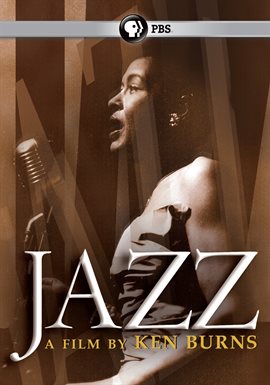
eVideo
hoopla Instant
A Masterpiece by Midnight
Year
2000
Language
ENGLISH
Duration
2h 0m
Rating
TVPG
Publication Information
PBS
Summary
In the 1960s, jazz becomes divided into "schools" -- Dixieland, swing, bop, hard bop, cool, modal, free, avant-garde. The question of what is jazz and what isn't rages, dividing audiences, dividing musicians, dividing generations. For many, the real question is whether jazz, the most American of art forms, will survive at all. Rock 'n' roll groups dominate record sales and radio, and many jazz musicians, like Dexter Gordon, are forced to leave America in search of work. Many artists use the music as a form of social protest: Max Roach composes the "Freedom Now Suite"; Charles Mingus makes his mark with overtly political recordings. John Coltrane records prolifically and appeals to broad audiences before his untimely death at age 40. Saxophonist Stan Getz helps boost a craze for bossa nova music. Great singers celebrate the essential contribution of vocalists to the development of jazz. The avant-garde movement creates innovative music but appeals to an increasingly limited audience. By the late l960s, jazz is struggling to find its way. In the early l970s, Louis Armstrong and Duke Ellington pass away. Miles Davis, after forming his most innovative acoustic jazz group, leads a movement of jazz musicians who incorporate elements of rock and soul into their music in an attempt to appeal to a wider audience. "Fusion" wins listeners, but alienates some dedicated jazz fans. By the mid-80s, jazz begins to bounce back; it's heard in concert halls, on rap records, in film scores and in television commercials. Jazz musicians continue to practice, perform, record, disagree, improvise and jam. As it approaches its centennial, jazz is still alive -- and still changing.